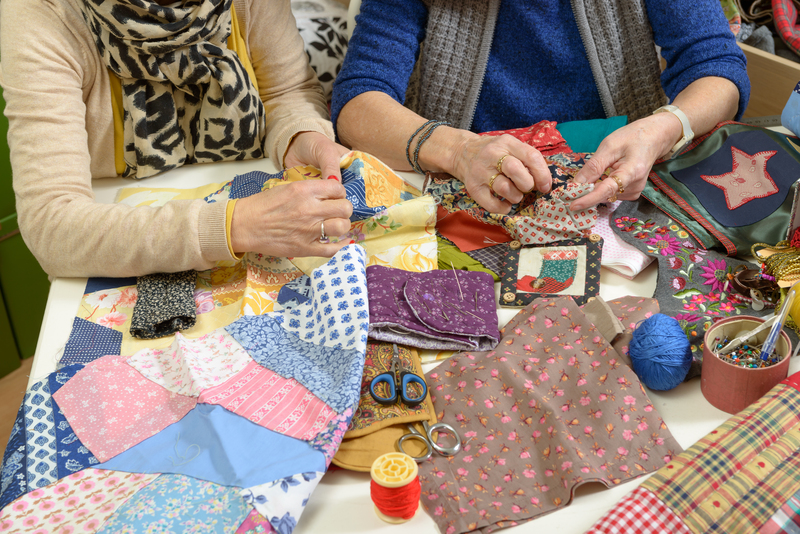Eco-Savvy Schools: The Ultimate Recycling Guide
Eco-savvy schools are shaping the future by teaching students about sustainability and responsible waste management. By implementing effective recycling strategies, these educational institutions not only reduce their environmental footprint but also foster a culture of eco-consciousness among students, staff, and the wider community. If your school aims to lead the green revolution, this comprehensive recycling guide for schools will equip you with practical steps, creative ideas, and inspiring examples to become a true recycling champion.
Why Recycling Matters in Schools
- Reduce landfill waste, conserving limited natural resources and minimizing environmental harm.
- Teach lifelong habits that students can carry into adulthood, benefitting society at large.
- Save money by cutting disposal costs and promoting reuse of materials.
- Foster responsibility and leadership skills through student-led green initiatives.
- Enhance a school's image as a forward-thinking, environmentally responsible community institution.
Given the large number of students and staff on most campuses, even small changes can have significant impacts on the planet. Let's explore how your school can become an eco-savvy recycling leader.

Setting Up a School Recycling Program
Starting a recycling program can feel daunting, but with a step-by-step approach, any school can implement an effective, sustainable system. Here's how to get started with your schoolwide recycling plan:
1. Assess Your School's Waste
- Conduct a waste audit to determine what types of recyclables your school produces most (e.g., paper, plastics, cans, electronics).
- Identify key locations for collection points, such as lunchrooms, classrooms, faculty lounges, and computer labs.
2. Build a Green Team
- Recruit motivated students, teachers, and custodians to form an eco committee.
- Assign clear roles--for example, organizing collection, managing data, and educating peers.
- Empower students to lead initiatives, increasing engagement across the school.
3. Choose What to Recycle
- Coordinate with your local recycling provider to find out what materials they accept.
- Common recyclables in schools include:
- Paper (notebooks, worksheets, office paper)
- Cardboard (delivery boxes, folders)
- Plastics (bottles, containers)
- Aluminum (drink cans, foil)
- Electronics (batteries, obsolete computers)
4. Set Up Convenient Recycling Stations
- Place clearly labeled bins in high-traffic areas.
- Use color-coded signs with images for younger students or ESL learners.
- Regularly monitor and maintain bins to prevent contamination with non-recyclables.
5. Educate and Motivate
- Host interactive assemblies and classroom presentations about the importance of recycling.
- Display charts showing progress toward school recycling goals to keep everyone inspired.
- Develop friendly competitions between grades or classes to boost participation.
Best Practices for Eco-Smart Recycling in Schools
Once your recycling program is up and running, enhance its effectiveness by following these proven strategies:
Minimize Contamination
- Clearly communicate which items are recyclable and which are not.
- Encourage rinsing containers before recycling to avoid soiling paper or cardboard.
- Hold periodic bin inspections and gentle reminders to create lasting habits.
Upcycle and Reuse
- Promote creative reuse of classroom materials, such as turning milk cartons into plant pots or art projects.
- Host clothing, book, and supply swaps instead of discarding usable items.
Integrate Recycling into the Curriculum
- Tie lessons about the environmental impacts of waste into science or social studies classes.
- Assign projects that involve creating art from recyclable materials.
- Challenge math classes to track recycling rates or calculate the school's carbon footprint.
Engage Families and the Community
- Send newsletters and host events to share the school's eco-friendly achievements and invite participation.
- Encourage students to apply recycling and reduction principles at home.
- Partner with local businesses for recycling drives or green fundraisers.
Advanced Eco-Savvy Recycling Ideas
Ready to take your green school to the next level? Here are some innovative initiatives that eco-savvy schools are championing around the world:
Organize E-Waste Drives
- Partner with certified electronics recyclers to collect old phones, tablets, and batteries from families.
- Teach students about the toxic elements in e-waste and responsible disposal practices.
Compost Cafeteria Waste
- Set up onsite compost bins for food scraps, transforming waste into nutrient-rich soil.
- Involve students in maintaining the compost and using it in school gardens.
- Reduce overall waste by encouraging reuseable lunchboxes and water bottles.
Host Green Fundraisers
- Arrange can and bottle drives, with proceeds funding environmental field trips or sustainability projects.
- Sell recycled crafts or upcycled goods made by students.
Award Eco Points and Certifications
- Develop a point system for students or classes that consistently recycle and reduce waste.
- Aim for formal recognition, like the Eco-Schools Green Flag Award or state/local green school certifications.
Success Stories: Inspiring Examples of Greener Schools
Many institutions have transformed their environmental footprint with determined student and staff leadership. Below are some case studies to motivate your school:
- Green Valley Elementary reduced waste by 50% in a single year after switching to double-sided printing, reusable cafeteria trays, and frequent recycling reminders.
- Riverbend High launched an annual "Waste-Free Lunch Challenge," encouraging students and families to eliminate disposables and focus on reusables, recycling, and composting.
- Sunrise Charter School created student-led recycling patrols. The program not only cut trash output but also improved school spirit and environmental awareness.
Resources and Tools for Eco-Savvy Schools
Kick-start or enhance your school's recycling efforts with these helpful resources:
- Environmental Protection Agency (EPA) - School Recycling Toolkit
A comprehensive collection of guides, posters, and classroom materials: EPA Recycling Basics - The Green Schools Alliance
A network for sharing best practices, funding opportunities, and peer-to-peer support: Green Schools Alliance - Eco-Schools USA
Offers teacher training, activity ideas, and resources for achieving green certifications: Eco-Schools USA - Local Municipal Recyclers
Contact your city or county waste authority for guidelines and support specific to your community.
Overcoming Common School Recycling Challenges
No recycling program is without hurdles. Here's how to address some frequent issues faced by eco-smart schools:
Contamination in Bins
- Solution: Use clear graphic signage and offer regular education sessions on sorting.
Student Apathy
- Solution: Make recycling fun and rewarding through competitions, recognition, and hands-on activities.
Limited Budget
- Solution: Seek grants, partner with environmental organizations, and ask local recyclers for donated bins or free pickup services.
Insufficient Staff Support
- Solution: Highlight time and cost savings, and point out positive impacts on student learning and school reputation.

Eco-Savvy Schools: Beyond Recycling
True sustainability isn't only about recycling--it's about reducing and reusing first. Encourage school-wide shifts such as:
- Printing double-sided to cut paper use
- Purchasing recycled content products for classrooms and offices
- Switching to refillable markers and eco-friendly cleaning solutions
- Organizing swap meets for uniforms and supplies
- Developing sustainable gardening programs using composted cafeteria waste
Conclusion: Building a Future of Eco-Conscious Leaders
Eco-savvy schools serve as powerful models for environmental stewardship, equipping students with the knowledge and passion to create a greener world. By establishing robust recycling systems, engaging the community, and integrating sustainability into daily learning, schools inspire the next generation of eco heroes.
Ready to make your school a shining example of sustainability? Use this ultimate recycling guide for schools as your roadmap and join the global movement for a healthier planet--one recycled bottle, paper, and act at a time.
Together, we can turn every school into a vibrant hub of eco-savvy innovation and positive change.